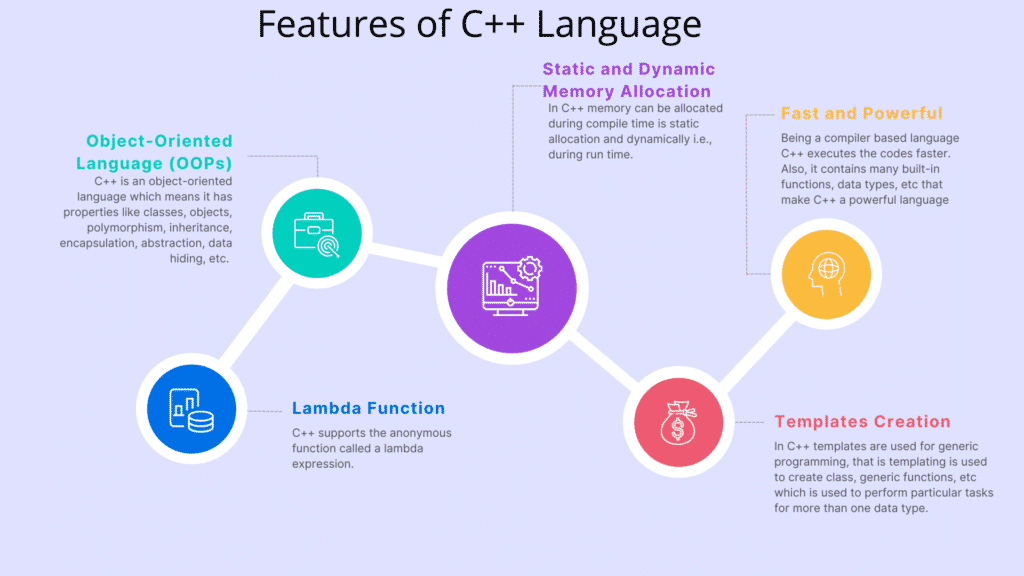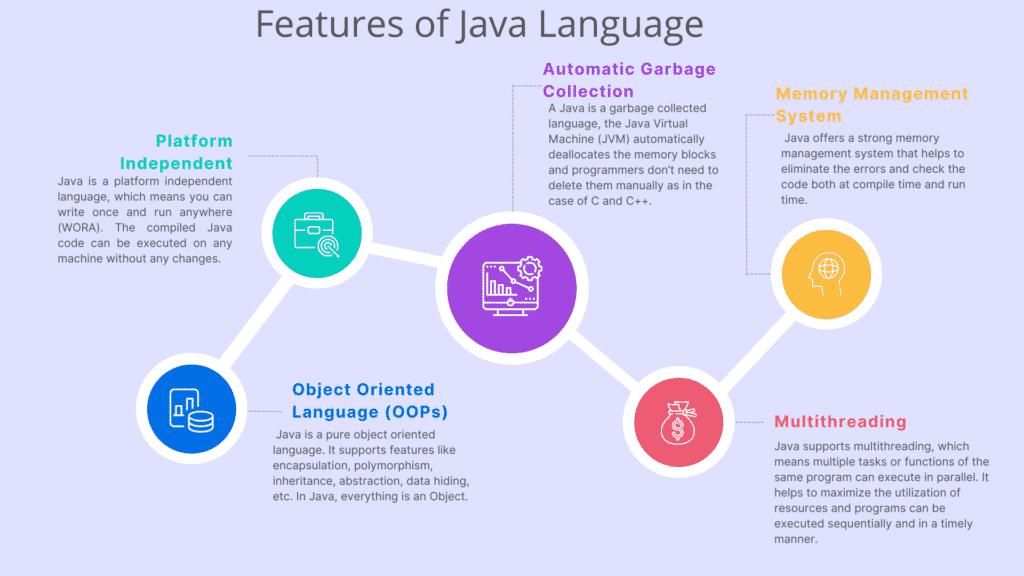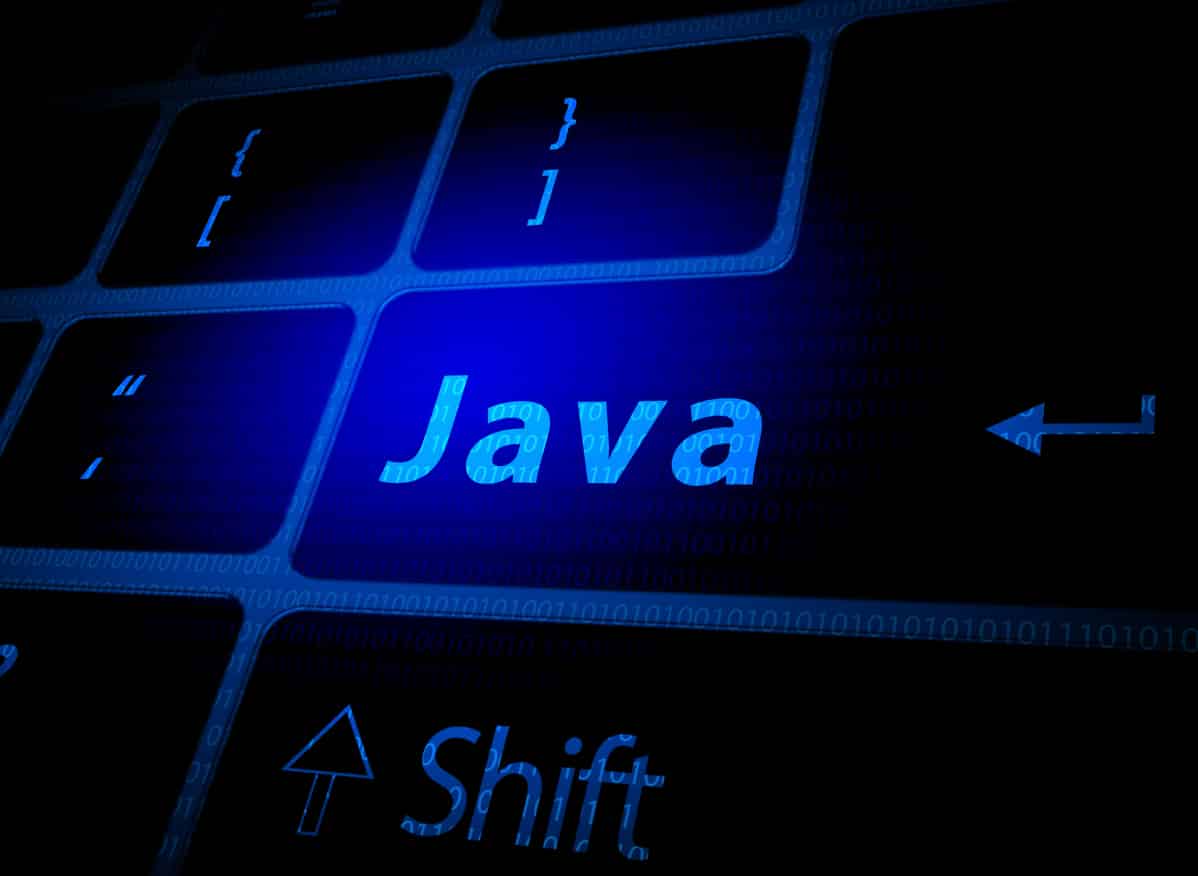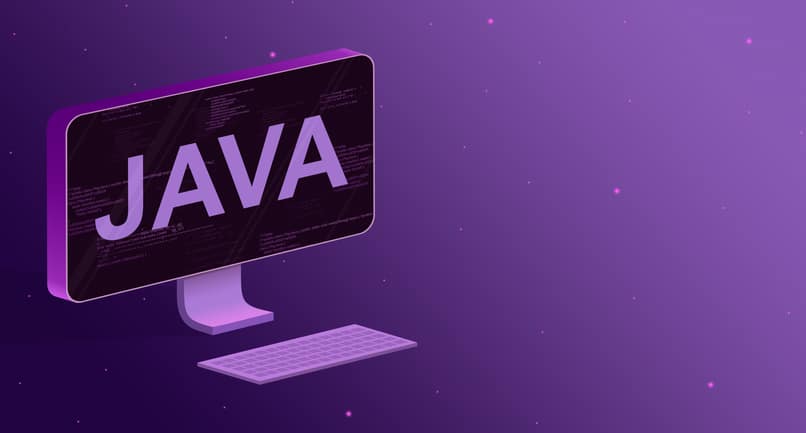- Introduction to C++
- History of C++
- History of Java
- Features of C++ Language
- Introduction to Java
- Features of Java Language
- Difference Between C++ and Java
- Example of C++ and Java Program
- Similarities between C++ vs. Java
- How do Developers actually use Java?
- How is C++ Used in the Real World?
- Advantages and Disadvantages of C++
- Advantages and Disadvantages of Java
- Conclusion
- Frequently Asked Questions
Introduction to C++
C++ was also known by the name “C with Classes”, which is a general purpose object-oriented programming language. Bjarne Stroustrup developed this language in 1979 at Bell Labs. C++ vs Java helps you to understand the basic difference between each language. It is a multi-paradigm programming language as it supports both procedural and object-oriented programming languages. C++ has the property of the C programming language and the classes and objects for user-defined data types. C++ is used with graphics applications, operating systems, desktop applications, high-performance applications, for instance, space probes, E-commerce, smart watches, game development, cloud distributed system, databases, compilers, etc. This blog on C++ vs Java will help you learn about the difference between C++ and Java and the basis of different features.
The C++ is being used by top tech giants companies such as Microsoft, IBM, Google, Meta, Amazon, etc. C++ has the properties of Object Oriented language such as Encapsulation, Polymorphism, Inheritance, etc. But without having classes and objects, the code of C++ can be compiled, hence it is also known as a semi object oriented language. Now, it is not only an extension of the C programming language but with modern updates and high performance it has become a popular and in-demand programming language.
History of C++
C++ is a programming language that Bjarne Stroustrup developed in 1979 while he was working on his Ph.D. thesis at Bell Labs. Stroustrup was trying to create an extension to the C programming language, which would allow for object-oriented programming. He called this extension “C with Classes,” but it eventually became known as C++.
C++ was designed to be an extension of C, but it also includes many new features that are not found in C. These include support for object-oriented programming, exception handling, and templates, among others. C++ is a statically typed language, meaning the type of a variable must be known at compile time.
Over the years, C++ has become a popular language for a wide range of applications, including operating systems, drivers, browsers, and high-performance computing. It is used in many areas of computer science, including scientific and engineering simulations, data analysis, and machine learning.
C++ is standardized by the International Organization for Standardization (ISO) and is updated regularly to reflect the latest developments in the language. The most recent version of C++ is C++20, which was released in 2020
History of Java
Java is a programming language and computing platform that was first released by Sun Microsystems in 1995. It was developed by James Gosling and a team of developers at Sun Microsystems with the goal of creating a language that was easier to use and more powerful than other programming languages at the time.
Java was designed to be simple, object-oriented, and highly portable, making it easy to write and run code on a wide variety of devices and platforms. It was also designed to be secure, with built-in support for network communication and data encryption.
One of the key features of Java is its use of the “virtual machine” concept, which allows Java programs to run on any device with a Java Virtual Machine (JVM) installed. This means that Java code can be written once and then run on any device supporting the JVM without recompiling the code for each platform.
Since its initial release, Java has become one of the most popular programming languages in the world, with millions of developers using it to build a wide range of applications, from the web and mobile apps to backend systems and large-scale enterprise applications. It is also used as a teaching language in many computer science programs and is a popular choice for beginners learning to program.
Features of C++ Language

- Object-Oriented Language (OOPs): C++ is an object-oriented language that means it has properties like classes, objects, polymorphism, inheritance, encapsulation, abstraction, data hiding, etc. The OOPs help in solving problems effectively, prevent data redundancy and ensure the flexibility of the code.
- Lambda Function: C++ supports the anonymous function called a lambda expression. The syntax of the lambda function is given as:
[capture](parameters) -> return_type { function_body }
- Static and Dynamic Memory Allocation: In C++ memory can be allocated during compile time that is static allocation and dynamically i.e., during run time. Many times, the programmer is not aware of how much memory would be required to store the particular information in the defined variable, so in this case, the size of required memory can be defined at run time. The dynamically allocated memory can be allocated using malloc(), calloc(), realloc(), etc functions.
- Fast and Powerful: Being a compiler based language C++ executes the codes faster. Also, it contains many built-in functions, data types, etc that make C++ a powerful language and the first choice for the programmer.
- Templates Creation: In C++ templates are used for generic programming, that is templating is used to create class, generic functions, etc which is used to perform particular tasks for more than one data type.
Introduction to Java
James Gosling developed Java at Sun Microsystems and it was released on May 23, 1995. Java programming language is being used by thousands of Software Development Companies and millions of developers around the globe. Today, Java is one of the most popular languages for developing Software Applications and solving real world problems. Java is a high-level object oriented language that supports the feature of WORA – Write Once and Run Anywhere, which means, compiled Java code can be run on all platforms without any need for recompilation.
As per the Java home page, more than 1 billion computers and 3 billion mobile phones use Java programming for application development.
Features of Java Language

- Platform Independent: Java is a platform-independent language, which means you can write once and run anywhere (WORA). The compiled Java code can be executed on any machine without any changes.
- Automatic Garbage Collection: Java is a garbage collected language, the Java Virtual Machine (JVM) automatically deallocates the memory blocks, and programmers don’t need to delete them manually, as in the case of C and C++.
- Object Oriented Language (OOPs): Java is a pure object-oriented language. It supports features like encapsulation, polymorphism, inheritance, abstraction, data hiding, etc. In Java, everything is an Object.
- Multithreading: Java supports multithreading, which means multiple tasks or functions of the same program can execute in parallel. It helps to maximize the utilization of resources, and programs can be executed sequentially and in a timely manner.
- Memory Management System: Java offers a strong memory management system that helps to eliminate errors and check the code both at compile time and run time.
Read in Detail: Why is Java Platform Independent?
Difference Between C++ and Java
The below table helps you to understand the difference between C++ vs. Java
| Parameters | C++ | Java |
| History | Bjarne Stroustrup developed C++ in 1979 at Bells Lab, and it was first released in Oct 1985 | James Gosling developed Java at Sun Microsystems, and it was first released on May 23, 1995 |
| Programming Paradigm | C++ supports procedural and Object Oriented programming language | Java only supports Object Oriented programming language |
| Platform Dependency | It is a platform-dependent language and needs to compile for different platforms | Java is platform-independent; that is, we can write once and run it anywhere |
| Compilation & Interpretation | C++ language can only be compiled and cannot be interpreted | Java language can be compiled and interpreted |
| Memory Management | In C++, memory management is manual, so we need to allocate or deallocate memory manually | In Java, memory management is system-controlled |
| Portability | C++ is a non-portable language | Java is a portable language |
| Pointers | C++ strongly supports pointers | Java has limited support on pointers |
| Parameter Passing | C++ supports both Pass by value and Pass by reference | Java supports only Pass by value technique |
| Overloading | C++ supports both operator and method overloading | Java supports only method overloading |
| Thread Support | C++ doesn’t have in-built thread support, it depends upon third-party threading libraries | Java has in-built thread support, with a class “thread” |
| Documentation Comment | C++ don’t support documentation comment | Java has built-in support for documentation comment |
| Compatibility | C++ is compatible with the C programming language | Java is not compatible with any other programming language |
| Goto Statement | C++ supports goto statement | Java doesn’t support the goto statement |
| Multiple Inheritance | In C++, both single inheritance and multiple inheritances are supported | In Java, only single inheritance is supported |
| Structure and Union | C++ supports Structure and Union | Java does not support Structure, and Union |
| Virtual Keyword | Virtual keyword is supported in C++, so we can decide whether to override a function or not | In Java, there is no virtual keyword, so all non-static methods are virtual by default Java |
| Hardware | C++ is closer to the hardware. That’s why C++ is often used for system programming, compiler, operating system, gaming, etc | Java is not closer to the hardware, so it is mostly used for application development |
| Data and Function | C++ offers both global scope and namespace scope, so the function and data can exist outside of class as well | In Java, there is no global scope so all data and functions need to be in the class, however, there can be a package scope |
| Runtime Error Detection | In C++, the runtime error detection is handled by the programmer | In C++, the runtime error detection is handled by the system |
| Root Hierarchy | No root hierarchy | Support single root hierarchy |
| Input and Output | Cin and Cout are used for input and output respectively | System. in and System.out.println is used for input and output respectively |
Example of C++ and Java Program
Addition of Two Numbers in c++
#include <iostream>
using namespace std;
void main() {
int a, b, sum=0;
cout << "Enter the value for two integers: ";
cin >> a >> b;
// sum of two numbers in stored in variable sum
sum = a + b;
// prints the sum of two numbers
cout << a << " + " << b << " = " << sum;
return 0;
}
Addition of Two Numbers in c++
import java.util.Scanner; // Importing the Scanner class
class Addition {
public static void main (String[] args) {
int x, y, sum=0;
Scanner myObj = new Scanner(System.in); // Creating a Scanner object
System.out.println("Enter the first number:");
x = myObj.nextInt(); // Take the user input
System.out.println ( " Enter the second number:" );
y = myObj.nextInt(); // Take the user input
sum = x + y; // Calculate the sum of two numbers x + y
System.out.println ("Sum is: " + sum); // Print the sum
}
}
Similarities between C++ vs. Java
There are several similarities between C++ and Java, as well as some significant differences. Some of the main similarities between the two languages include the following:
- Both C++ and Java are object-oriented programming languages, which means they both support using objects and classes to organize code and data.
- Both languages support the use of polymorphism, inheritance, and encapsulation, which are key concepts in object-oriented programming.
- Both languages use a similar syntax, with curly braces ({}) used to enclose blocks of code and semicolons (;) used to indicate the end of a statement.
- Both languages are compiled languages, which means that code is converted into machine-readable instructions before it can be executed.
Some of the main differences between C++ and Java include the following:
- C++ is a compiled language that is designed to be closer to the hardware, whereas Java is a compiled language that runs on top of a virtual machine. This means that Java code is typically slower than C++ code, but it is also more portable, as it can run on any device with a Java Virtual Machine (JVM) installed.
- C++ allows for the use of pointers and manual memory management, whereas Java does not support pointers and uses automatic garbage collection to manage memory.
- Java has a larger standard library and a more robust set of built-in features than C++, which makes it easier to use for certain tasks.
Overall, C++ and Java are both powerful programming languages with their own unique strengths and weaknesses. The choice between the two languages often depends on the specific requirements of a project and the preferences of the programmer.
How do Developers actually use Java?
Java is a widely used programming language that is often used by developers to build a variety of different types of applications. Some common ways in which Java is used by developers include:
- Web Applications: Java is often used to build server-side components of web applications. It is a popular choice for building web applications due to its portability, scalability, and security features.
- Mobile Applications: Java is a popular choice for building Android mobile applications. It is the primary language supported by the Android operating system and is used by many developers to build native Android apps.
- Desktop Applications: Java is also used to build standalone desktop applications that can be run on Windows, Mac, and Linux systems.
- Backend Systems: Java is often used to build the backend systems of large-scale enterprise applications, such as database systems and business logic servers.
- Embedded Systems: Java is also used to develop embedded systems, such as those found in automotive, aviation, and industrial control systems.
Overall, Java is a versatile language that developers use in a wide range of contexts to build a variety of different types of applications.
How is C++ Used in the Real World?
C++ is a powerful and widely used programming language that is often used in various real-world applications. Some common ways in which C++ is used include:
- Operating Systems: C++ is often used to build the core components of operating systems, such as the kernel, drivers, and system libraries.
- Desktop Applications: C++ is used to build standalone desktop applications that can be run on Windows, Mac, and Linux systems. It is often used for applications that require high performance, such as graphics-intensive games or video editing software.
- Embedded Systems: C++ is often used to build software for embedded systems, such as those found in automotive, aviation, and industrial control systems.
- Web Browsers: C++ is used to build the core components of many web browsers, including Chrome and Firefox.
- High-Performance Computing: C++ is often used in scientific and technical applications that require high performance, such as simulations and data analysis.
Overall, C++ is a versatile language that is used in a wide range of contexts to build a variety of different types of applications. It is particularly well-suited for applications that require a high degree of performance or low-level control.
Advantages and Disadvantages of C++
C++ is a widely used programming language that has a number of advantages and disadvantages. Some of the main advantages of C++ include the following:
- Performance: C++ is a compiled language that is designed to be close to the hardware, which makes it a good choice for applications that require a high degree of performance.
- Control: C++ gives programmers a high level of control over the hardware and software, allowing them to optimize their code for specific platforms and use low-level features such as pointers and manual memory management.
- Compatibility: C++ is compatible with a wide range of platforms and operating systems, including Windows, Mac, Linux, and many others.
- Ecosystem: C++ has a large and active community of developers and a robust ecosystem of libraries and tools.
Some of the main disadvantages of C++ include the following:
- Complexity: C++ is a complex language that requires a steep learning curve, making it more difficult for beginners to learn than some other languages.
- Lack of Safety: C++ does not have built-in safety features such as automatic bounds checking or garbage collection, which can make it more prone to errors and security vulnerabilities.
- Lack of Portability: C++ code is often not portable across different platforms, requiring developers to write and maintain separate versions of their code for each platform.
Overall, C++ is a powerful and widely used programming language that is well-suited for applications that require high-performance or low-level control. However, it can be more difficult to learn and use than some other languages, and it lacks some of the safety and portability features found in other languages.
Advantages and Disadvantages of Java
Java is a widely used programming language with several advantages and disadvantages. Some of the main advantages of Java include the following:
- Portability: Java is designed to be highly portable, with code that can run on any device that has a Java Virtual Machine (JVM) installed. This makes it easy to write code once and run it on a wide variety of devices and platforms.
- Security: Java has built-in network communication and data encryption support, making it a good choice for building secure applications.
- Ecosystem: Java has a large and active community of developers and a robust ecosystem of libraries and tools.
- Simplicity: Java is designed to be easy to learn and use, with a simple syntax and a large standard library.
Some of the main disadvantages of Java include the following:
- Performance: Java code is generally slower than native code, as it runs on top of a virtual machine. This can make it less suitable for certain types of applications that require a high degree of performance.
- Lack of Control: Java does not give programmers as much control over the hardware and software as languages such as C++, which can make it more difficult to optimize code for specific platforms or use low-level features.
- Memory Management: Java uses automatic garbage collection to manage memory, which can be less efficient than manual memory management in languages such as C++.
Overall, Java is a popular and widely used programming language that is known for its portability and security features. It is relatively easy to learn and use, but it may not be the best choice for applications requiring high performance or low-level control.
Conclusion
So, as we have seen the difference between c++ vs. java, we came to know that top tech companies are using both languages, and learning these languages would prove to be very useful.
People who are working in the field of software development or want to work in the software industry basically prefer Java because of its flexibility, diversity, templates, automatic garbage collection, etc., making Java useful for web-based applications. Whereas people looking to make their career in game development, low-level programming, system programming, building operating systems, etc., preferred C++ because of its speed, performance, closeness to hardware, etc. Enroll in this PG Program in Software Development to learn more about programming and software development.
Frequently Asked Questions
It would be a difficult task to choose one programming language between C++ vs. Java. Both languages have their own advantages and disadvantages. C++ is most probably used when we are working on system programs, gaming, or low-level programming, whereas Java is more used for software development or web-based application development.
Choosing the right language depends upon the application that we are developing. The best way is to understand the use case of the software and then conclude which one is fit for the application.
The powerfulness depends upon the criteria on which we are judging the language. For example, if we are talking about speed, high performance, and low-level programming, then C++ is more powerful than Java. On the other hand, if we are judging on the basis of templates, flexibility, automatic garbage collection, and memory management, then Java would be more powerful than C++.
C++ is a procedural and object-oriented language, whereas Java is only an object-oriented language. The C++ compiler compiles the source code and converts it into machine code that’s why it is platform dependent in Java the source code is first converted into bytecode using its compiler, and then the Java interpreter executes the bytecode at runtime and produces the output, that’s why it is platform independent.
Yes, Java Virtual Machine (JVM) by Sun and IBM is written in C++, and some other JVM’s are written in C language.
It depends upon the person to person’s interest. If someone wants to make a career in gaming, low-level programming, system programming, etc., then C++ would be a preferred language for that person. However, if someone is looking to grow their career in software development, application development, etc., then they can prefer Java over C++ because of its rich libraries, templates, flexibility, portability, etc.
They are quite similar in the same context, such as both are object-oriented languages, have similar kinds of syntax, primitive data types, object handling, can be used for application development, etc. But in other cases, they are completely different such as memory management, garbage collection, inheritance, polymorphism, etc.
Engaging in the study of Java programming suggests a keen interest in the realm of software development. For those embarking upon this journey with aspirations towards a career in this field, it is recommended to explore the following pages in order to acquire a comprehensive understanding of the development career path:






